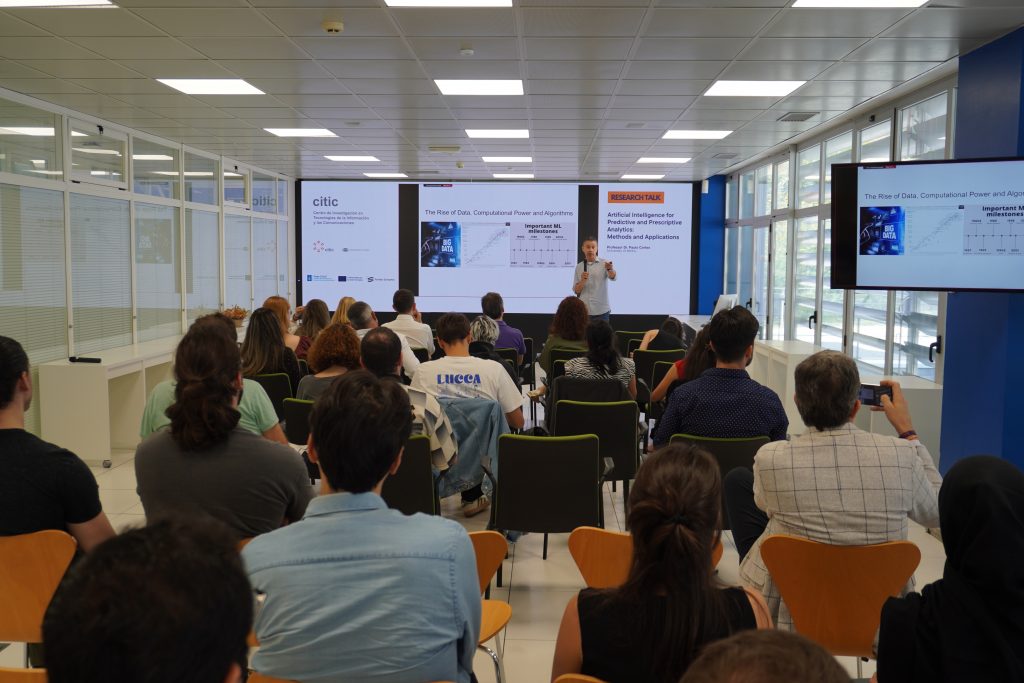
Prediction, Decision, and Data: Professor Paulo Cortez speaks at CITIC about how AI is transforming key sectors
- In the healthcare field, he showed how it is possible to predict critical events in intensive care units using machine learning models applied to clinical data.
A Coruña, July 7, 2025 – The Centre for Research in Information and Communication Technologies (CITIC) of the University of A Coruña hosted this Monday the lecture by Professor Paulo Cortez, full professor at the University of Minho, considered one of the leading voices in the field of applied artificial intelligence. The talk, titled “Artificial Intelligence for Predictive and Prescriptive Analytics: Methods and Applications”, took place in the CITIC Cloud Room and brought together an audience composed of research staff, professionals from the technology sector, and students, both in person and online.
The event was part of CITIC’s strategy to strengthen the exchange of scientific knowledge and foster collaboration with internationally renowned research centers. During his presentation, Cortez offered a detailed overview of how machine learning techniques, evolutionary optimization, and explainable models (XAI) can be effectively applied to predict complex behaviors and prescribe actions in real-world environments.
The professor presented case studies from different productive sectors, based on his experience of more than two decades. In the field of healthcare, he showed how it is possible to predict critical events in intensive care units using machine learning models applied to clinical data. He also presented his research in the wine industry, focused on estimating wine quality and pricing based on millions of records from the Vivino platform.
In the financial and marketing sector, he analyzed how the use of predictive algorithms can anticipate the success of banking telemarketing campaigns, while in the industrial environment he highlighted the usefulness of time series models to anticipate risky physical movements among workers, in order to prevent injuries. Finally, in the context of smart cities, he explained the development of a sustainable multimodal routing system, tested in the city of Porto, based on evolutionary optimization algorithms.
Cortez also emphasized the importance of model interpretability, presenting tools such as the rminer package in R, which allow for sensitivity analyses to understand the internal functioning of algorithms—an important contribution at a time when transparency in artificial intelligence is increasingly demanded.
The career of Professor Paulo Cortez was recently recognized with the Portuguese Excellence Professor of Artificial Intelligence 2025 award, granted by the Ramón Areces Foundation. He has authored over 220 scientific publications in international journals and conferences, holds an h-index of 53 on Google Scholar and 33 on Scopus, and has received more than 15,800 and 6,500 citations, respectively. He currently serves as a full professor in the Department of Information Systems at the University of Minho and as deputy director of the ALGORITMI Research Center.
At the end of the session, CITIC offered attendees the opportunity to hold individual meetings with Professor Cortez, with the aim of identifying collaboration opportunities and showcasing the research lines in artificial intelligence and data science being developed at the University of A Coruña.





